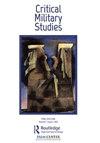世界主义与个人伦理反思——瑞典退伍军人的经验体现
Q1 Arts and Humanities
引用次数: 2
摘要
摘要:本文旨在探讨世界性思想与具体军事经验之间的对话,重点是个人的道德经历和反思。虽然我们的道德推理源于世界主义,但我们承认它对个人的其他思考和行为缺乏敏感性。此外,它还没有充分质疑在考虑其他欲望和利益的情况下对世界主义审议进行调解的方式——我们将其定义为调解世界主义。为了说明和证实我们的理论主张,我们选择了一些采访和其他材料。我们提供了一个分两步的分析,首先是确定瑞典国际化军事自我叙事中的关键主题,使我们能够确定它与退伍军人个人道德反思的交叉程度。其次,我们对退伍军人在参与国际行动中所体现的道德反思进行了讨论性分析。我们在我们的材料中发现,瑞典退伍军人有一种世界性的义务感,这些人表达了超越国界行善的愿望。此外,退伍军人与当地平民的实际接触以及对小规模援助项目的支持产生了世界责任的概念。然而,退伍军人的道德反思很少是纯粹的世界性的,而是通过他们为国家服务的愿望、作为行动的关键部分支持战友、获得新的专业技能和寻求新冒险的愿望来进行调解。我们认为,中介世界主义的概念捕捉到了这种混合的道德情感和具体的体验。最后,我们总结了我们的主要论点。本文章由计算机程序翻译,如有差异,请以英文原文为准。
Cosmopolitanism and individual ethical reflection – the embodied experiences of Swedish veterans
ABSTRACT This article aims to enable a conversation between cosmopolitan thought, with focus on individual ethical experiences and reflections, and research on embodied military experiences. While we derive our ethical reasoning from cosmopolitanism, we concede that it lacks sensitivity to individuals’ other-regarding reflections and acts. Moreover, it does not sufficiently problematize the ways in which cosmopolitan deliberations are mediated in consideration of other desires and interests – what we define as mediated cosmopolitanism. To illustrate and substantiate our theoretical claims we draw on a selection of interviews and other material. We provide a two-step analysis, first by identifying the key themes in Sweden’s cosmopolitan military self-narrative, enabling us to determine the extent to which it intersects with individual veterans’ ethical reflections. Second, we conduct a discursive analysis of veterans’ embodied ethical reflections, that have emerged from their participation in international operations. We identify a cosmopolitan sense of obligation amongst Swedish veterans across our material, with such individuals articulating a wish to do good beyond borders. Notions of cosmopolitan responsibility, moreover, arise from veterans’ actual human encounters with civilians on the ground and through support for small-scale aid projects. However, veterans’ ethical reflections are rarely purely cosmopolitan, rather mediated through their wish to serve the nation, support fellow soldiers as a key part of the operation, acquiring new professional skills and the desire to seek new adventures. We argue that the concept of mediated cosmopolitanism captures such mixed ethical sentiments and embodied experiences. We conclude by summarizing our key arguments.
求助全文
通过发布文献求助,成功后即可免费获取论文全文。
去求助
来源期刊

Critical Military Studies
Arts and Humanities-History
CiteScore
1.90
自引率
0.00%
发文量
20
期刊介绍:
Critical Military Studies provides a rigorous, innovative platform for interdisciplinary debate on the operation of military power. It encourages the interrogation and destabilization of often taken-for-granted categories related to the military, militarism and militarization. It especially welcomes original thinking on contradictions and tensions central to the ways in which military institutions and military power work, how such tensions are reproduced within different societies and geopolitical arenas, and within and beyond academic discourse. Contributions on experiences of militarization among groups and individuals, and in hitherto underexplored, perhaps even seemingly ‘non-military’ settings are also encouraged. All submitted manuscripts are subject to initial appraisal by the Editor, and, if found suitable for further consideration, to double-blind peer review by independent, anonymous expert referees. The Journal also includes a non-peer reviewed section, Encounters, showcasing multidisciplinary forms of critique such as film and photography, and engaging with policy debates and activism.
 求助内容:
求助内容: 应助结果提醒方式:
应助结果提醒方式:


